Volunteering Work
There are many social projects where students can work, after having Spanish lessons with us. We work with kindergartens.....
There are many social projects where students can work, after having Spanish lessons with us. We work with kindergartens.....
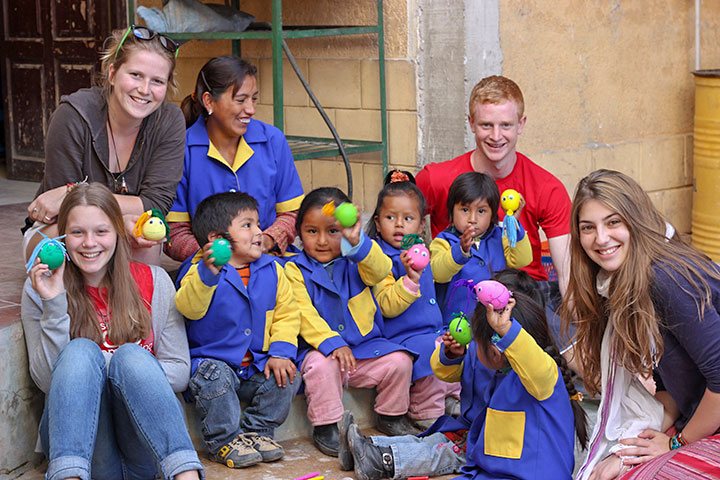
Ages: 4-6 years old. These are Centers of Teaching that have as primordial task to educate the children in an atmosphere that he/she responds to their partner-affective necessities. This way, the boy's cognitive development will be carried out integrally, leaving it capable to face the education later on in the school.
The centers have a fundamental aim which is to educate the children in a safe and secure atmosphere and to prepare them for the future. It encourages the cognitive development of the children. Aside from the academic training, the kindergartens work to develop in the children’s principles and attitudes towards responsibility, autonomy, respect, creativity and security within themselves.
There are kindergartens where they have the specialty in teaching children and girls with different physical and mental disability (Down syndrome, paralysis cerebral, different grades late mental, physical paralysis). The children and girls that attend these kindergartens are university parents' children, merchants, workers and salespersons of the market that live in the neighborhood where they are located. The majority of children lives in the outskirts of the city and come from families with very limited income.
The centers really need help to care effectively for the children and the staff is very keen to receive volunteers from abroad.
Things to do
Willing to donate?
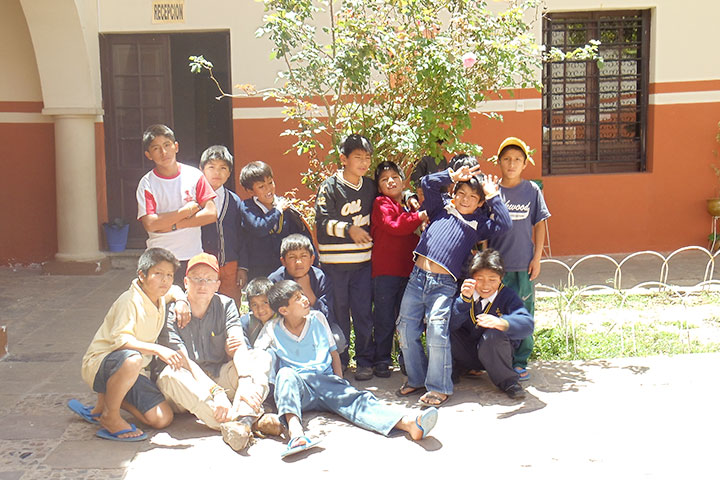
The girls and boys living in orphanages have been abandoned and are waiting to be adopted. The ages of the children are generally from 0 to 6 years.
Things to do
Willing to donate?
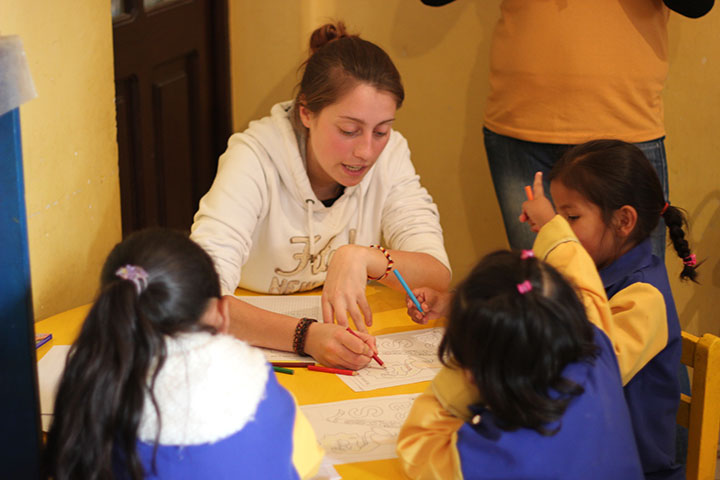
Day-care centers work Monday through Friday. There are around 30 children per center, children of women who work at night clubs. These children are now in the care of the centers and also receive breakfast and lunch. The children are aged from 1 to 6 years old.
Things to do
Willing to donate?
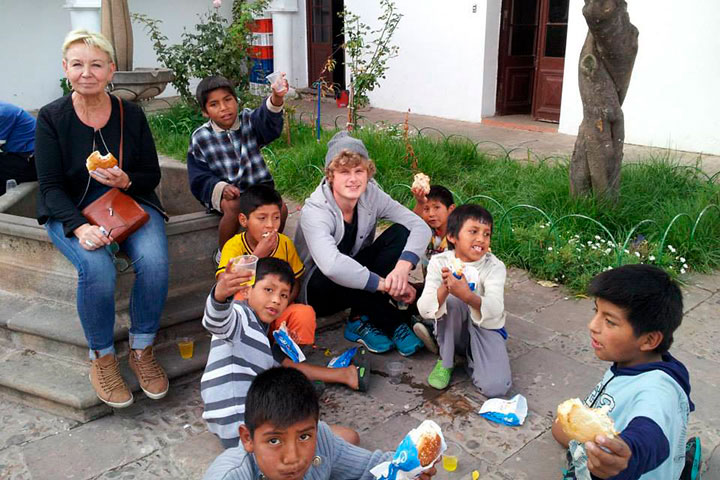
These Centres offers free educational support to children and adolescents between 4 to 15 years old that live in the poorer outskirts of the city of Sucre. Also they offer services such as careers advice, recreational activities and manual training as well as medical and nutritional aid. The children and adolescents that attend these centres are from native farming families with limited economic resources that have migrated from the country to the city. Many families dedicate themselves to the informal buying and selling of agricultural goods at markets around the city. The centres take care of more than 60-100 children, on average. Some projects are known as Home for Working Children and Teenagers of the Street and accommodate approximately 100 boys and young men between the ages of 6 and 17, many of who work as mechanics’ assistants, they also sell newspapers, wash cars, shine shoes, and sell bread, etc.
These projects have the mission to protect and house little girls and teenagers (women) from 5 to 18 years old, who due to different reasons and social circumstances are abandoned. Many of the girls are taken care only by their mothers, close relatives, older brothers, or in extreme cases they live by their own. The little girls visit their families on weekends, for no other reason but to maintain their relationship with them.
We need volunteers who like to teach with energy, patience, and love towards the children. Volunteers will have to do everything, from teaching mathematics, language, history, sciences, chemistry, geography, (according to language level), and also help to cook, sweep, paint, wash dishes, etc. In other centers volunteers are especially needed to help the boys with homework and with their personal hygiene. Volunteers can also teach them how to play a musical instrument or to simply play sports (soccer, basketball, etc.), help with cleaning chores, or help in the bakery and selling the bread.
Things to do
Willing to donate?
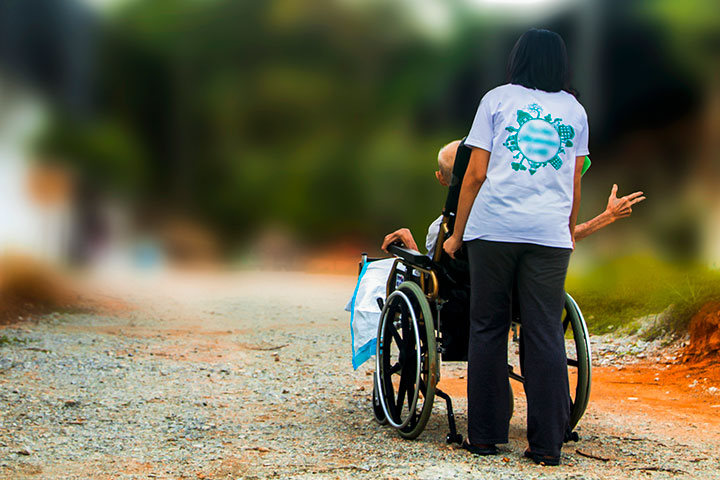
We offer volunteering with handicapped children at health institutions. At the boarding school live 170 children from 1 to 17 years old. They all are poor children who do not have parents and are from the country. Due of their incapacity, these children are not accepted in orphanages. Activities/Tasks: Currently 3 programs in operation:
1. Rehabilitation Clinic for Children - The Institute has doctors, nurses, physiotherapists and teachers who take care of children living in the center.
2. Horse Therapy - A new program for the rehabilitation of the children - at the moment they have two horses.
3. Boarding school - The boarding school accepts any volunteer. You will not be in charge of patients at the hospital, but will work with the children’s homework, as most of them go to public schools. The Director is looking for volunteers who can work in cultivating the self-esteem of the children.
People, who can play, take the children for short walks in the park or in the garden, play with dough, sing, and dance, feed them, do sports, etc. Other Requirements: Compassion, understanding, a desire to help in that area, friendly, and always to have a big smile. Physiotherapists are desperately needed. Volunteering at another institution, the Psychiatric is an excellent opportunity for all those interested in the area of medicine. There are 400 patients, as well as a team of doctors, nurses, assistants, psychologists, therapists, physiotherapists, Bolivian medical students, etc. The volunteers work mainly with patients; talking to them, helping with their exercises, helping them practice sports, etc. There is also a section for elderly patients who need help with their wheelchairs, reading newspapers and eating.
Things to do
Willing to donate?
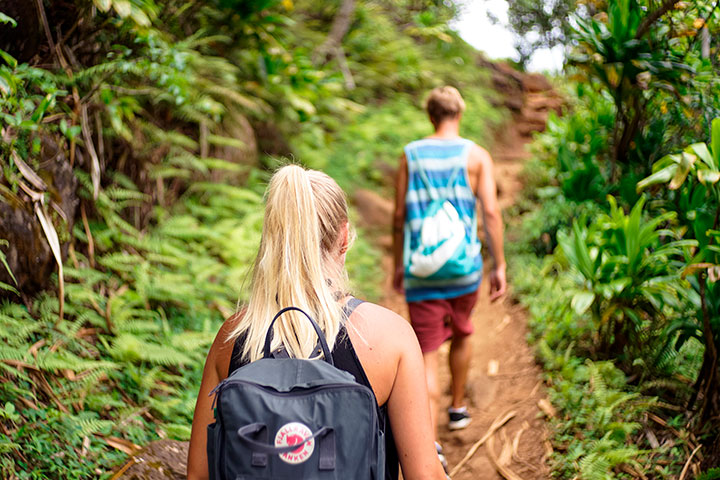
There is a project in a little village with the community on the banks of the Beni River, located in Madidi National Park, famous as one of the places on earth with the widest biodiversity. The project is only reached by boat 60 minutes upstream from the main town. The community has 235 inhabitants. The town has a small community of 32 families. They are Tacana Indians who have historically lived along the shores of the Beni and Tuichi rivers. They live in harmony with their environment and from various small commercial ventures such as handicrafts, fishing and agriculture. Now they also live from visits to their eco-tourism lodge that they have built and run themselves with the financial and technical help of local authorities and several NGOs and the United Nations Development Fund.
The Community needs people who:
- Who would like to learn another culture, learn a simple way of living, respect traditions, respect all people, and love nature.
- Who are capable of working in any daily activity.
- People, who can be very flexible with nature, some months lots of rain, humid region, and mosquitoes, not complain for simple food and living conditions.
- People who would like to learn traditional way of fishing, hunting, cooking, traditional medicine with native plants, learn how to play native instruments, etc…
Things to do
ACCOMMODATION FOR VOLUNTEERS
WHAT KIND OF FOOD WILL THE COMMUNITY PROVIDE?
Willing to donate?